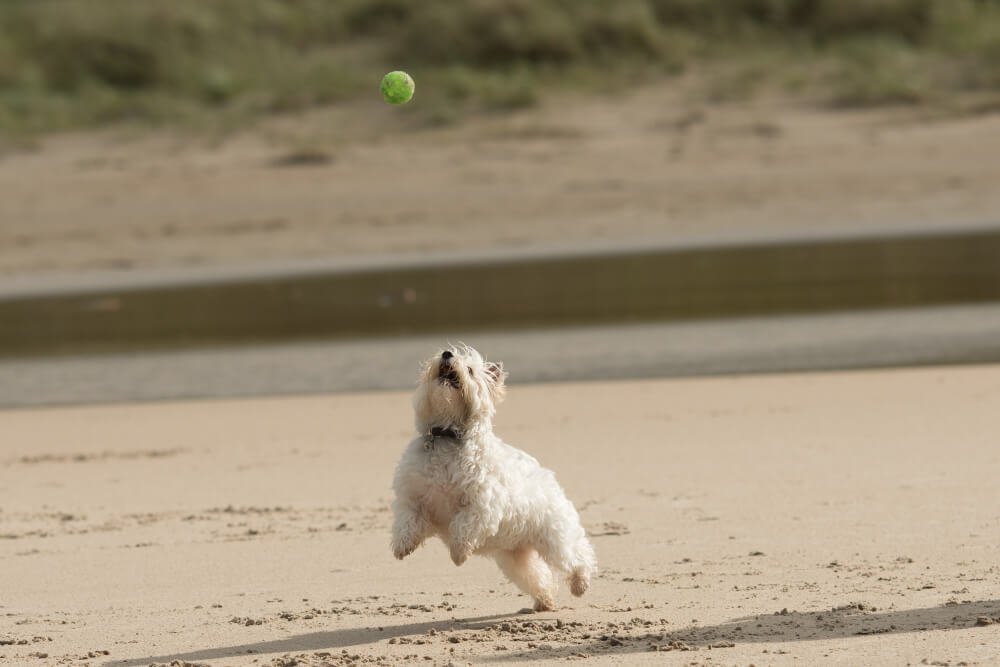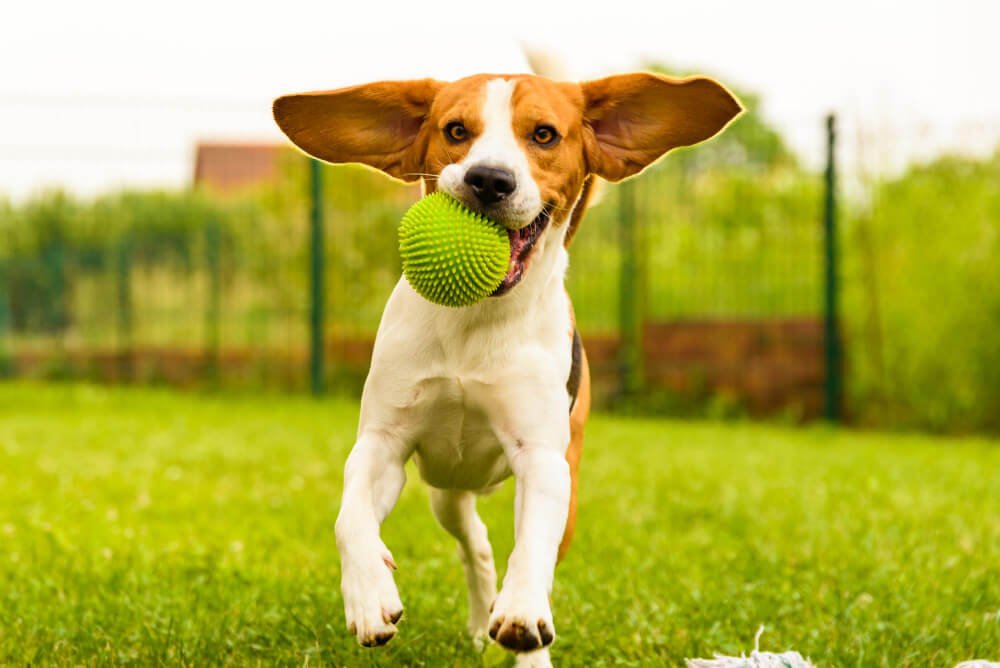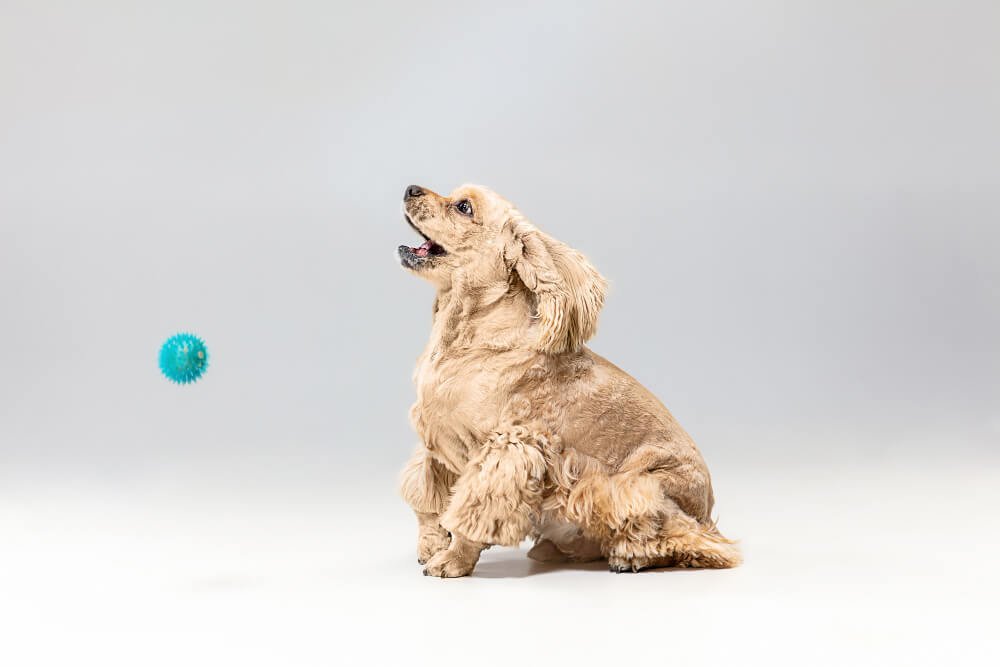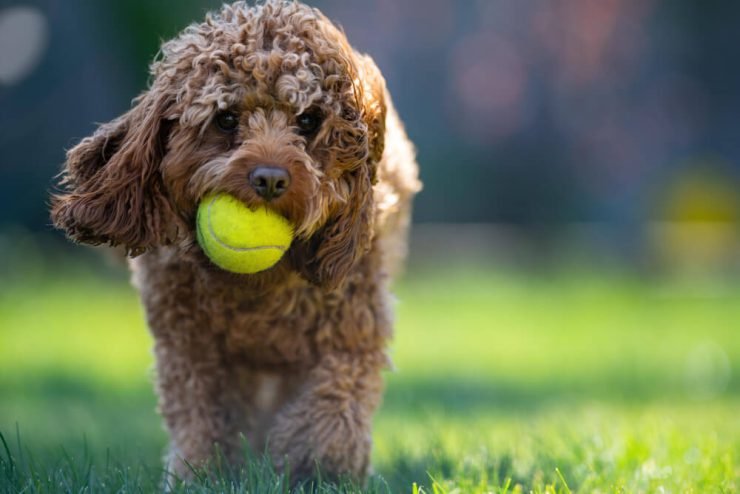We’ve all seen dogs chase tennis balls till they grab them, munch on them briefly, then bring them to their owners to be thrown before running after them again. It’s an entertaining game that also gets them moving.
But do dogs like tennis balls? Are they able to play with them? It is advised against it. You won’t ever let your dog bite someone again after reading the justifications for our advice against it. But the game of the ball does not end here; we also give you the most excellent options for carrying on risk-free.
How is a tennis ball made?

While playing with it, your dog will repeatedly bite it. Therefore you should know precisely what your dog is chewing. You might not believe this is important. So you can determine whether it is secure.
It is created as the tennis ball’s core is a rubber spherical with air inside it. After that, it is covered with synthetic felt and saturated with a solid industrial adhesive (which, unlike natural felt, which is made of wool, is highly toxic).
Finally, the ball is covered with fiberglass to increase resistance. This felt yellow because it had been dyed with a poisonous and highly resistant chemical.
Are tennis balls toxic to dogs?

While accidentally chewing one may not result in any severe issues, routinely using them as toys is highly dangerous. Even when they don’t bite it, the fiberglass on its surface constantly files their teeth—our canines’ teeth enamel chips from even light contact.
Due to wear from contact with fiberglass, our dog will eventually get major dental problems. Additionally, when they bite, they moisten it with saliva infused with the chemicals and colors the ball contains, increasing the likelihood that our dog will become ill.
We all know how dogs are; eventually, after repeatedly biting them, they will wind up fraying or breaking them into little bits, and their parts are highly toxic. They can result in major intestinal blockage and severe poisoning if ingested.
What if my dog has played with a tennis ball?

Your dog may not have been in danger while playing randomly, but his dental enamel may already be harmed (luckily, it regenerates). If we’ve ever played fetch with our dog and the object was a tennis ball, we now know it isn’t good and shouldn’t be done again.
It is advised that a vet check your dog’s teeth at his subsequent appointment if he frequently plays with this kind of ball to rule out severe or irreversible damage to his teeth. Remember that dogs use their mouths for everything, including picking up objects, self-defense, and eating.
Healthy alternatives to tennis balls

There are a variety of alternative balls available that we may use to play with our dogs, and they won’t pose a severe health risk to them. Some even come highly recommended since they serve the dual purpose of cleaning teeth and being entertaining.
Dog tooth ball

These balls are made of non-toxic rubber, making it safe for our dog to bite them repeatedly. And because of its ergonomic form, cleaning your teeth won’t hurt them.
Tennis balls can be hazardous, but racquetball balls are a great alternative because they don’t have any felt layer.
Precautions to keep in mind
Although they are harmless toys, we should never stop paying attention to them. There is no such thing as a perfect toy, and all of them have the potential to shatter or, in the worst-case scenario, cause choking or obstruction.
It is preferable to change the ball as soon as you notice that your dog is starting to break it with another one or with a specially designed-chew for dogs who are resistant to cracking things.





Add comment